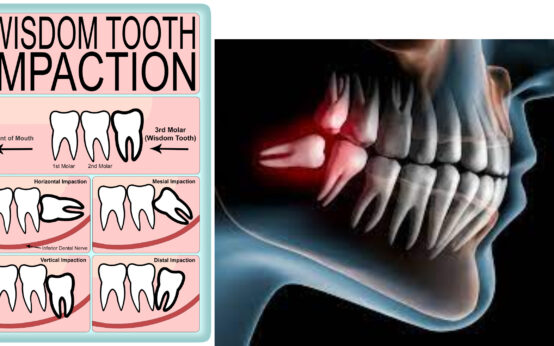You might have impacted wisdom teeth. If so, it's time to learn more about the symptoms and treatment options for this oral problem. Here are some common signs and symptoms, causes, and treatment options. If you're unsure whether you have impacted wisdom teeth, talk to your dentist for a consultation. Pain in the face or jaw, swelling, and bad taste are all signs that your wisdom teeth are impacted. Some people have speech and hearing issues, and allied hearing services can help you with this.
Symptoms
A swollen or bleeding gums could be a sign of impacted wisdom teeth. You may also notice a change in your jaw's alignment. In some cases, an impacted tooth is also a sign of dental decay. However, there are some warning signs that you should be aware of before undergoing an extraction. Among these are swollen gums, foul breath, and malocclusion.
In addition to pain, swelling, and infection, an impacted tooth can also damage nearby teeth and bone. If it is not removed properly, it can lead to a tumor or cyst that can damage the jawbone. Ultimately, an impacted tooth will require extraction. Further, impacted teeth are more difficult to remove, and surgery may cause complications. Also, they are more difficult to keep clean than other teeth. Furthermore, they are more likely to become infected, which can affect your general health.
Other signs of impacted wisdom teeth include swelling in the jaw and swollen gums. If you have these symptoms, it may be time to visit a Calgary dentist. In addition to painful gums, an impacted tooth can also cause swelling in the surrounding lymph nodes and glands. Swollen glands are a sign of gum disease. If you notice any of these symptoms, it's time to schedule an appointment with a dentist to have them removed.
In addition to pain and discomfort, impacted wisdom teeth can lead to other issues. They can cause problems with chewing, cleaning, and even lead to the formation of a cyst or pus. They can also cause a swollen mouth or even pain in the jaw or neck. They can also cause nerve damage and infection. You should seek medical attention immediately to avoid further damage. This can be an indication that you have an impacted wisdom tooth.
Surgical removal of impacted wisdom teeth is usually the best treatment option. In this procedure, an oral surgeon will numb the mouth to prevent any discomfort and makes an incision over the impacted tooth to reach it. The surgeon may need to break the jaw bone to gain access to the tooth and root. While this procedure is not as invasive as tooth extraction, you may experience bleeding in the first few days after the procedure. It is important to follow your surgeon's post-surgical instructions.
If your third molars do not properly erupt, they will become impacted. This can cause pain, damage to the neighboring teeth, and even gum disease. While many people don't experience visible signs of impacted wisdom teeth, the condition can cause serious dental problems and lead to severe dental issues. Although there are many warning signs of impacted wisdom teeth, some people do not even notice the problem. If the teeth are partially impacted, they can actually break through the gums and cause additional complications.
Causes
Imbalanced or impacted wisdom teeth can damage adjacent second molars and crowd your smile. Because of their position in the jawbone, the wisdom teeth can push adjacent teeth out of alignment. This can lead to gum disease and tooth decay. In some cases, cysts can develop, requiring surgery to remove the tooth and surrounding tissue. Genetics is also a factor in the position of upper wisdom teeth. Here are some common causes of impacted wisdom teeth and the treatment options.
Imbalanced wisdom teeth are not always painful, but they can cause other problems. The crowded teeth may cause pain and discomfort because they squeeze the gums. In some cases, the teeth are partially grown and may trap food particles and bacteria in the area, leading to an infection. Alternatively, impacted wisdom teeth can form cysts and fluid-filled sacs that can damage the jawbone. In either case, it's imperative to visit a dentist as soon as possible.
If the wisdom teeth partially erupt, they can cause pain and other problems. The partially erupted teeth can also collect plaque, food particles, and gum debris, which can lead to tooth decay and gum swelling. They can also cause an infection called pericoronitis, which occurs when bacteria become trapped between the tooth and the gum. Peritonitis can spread toward the throat or the neck. The pain and swelling associated with impacted wisdom teeth can also affect the health of the other teeth nearby, including your jaw.
The most common cause of impacted wisdom teeth is the lack of space for the teeth to emerge properly. Most people will experience their third molars emerging properly, but this is not the case for everyone. Too much overcrowding or the wrong orientation of other teeth may cause the third set of molars to be impacted and may even lead to the need for orthodontic treatment. If you are concerned about the appearance of your teeth, contact Modern Day Smiles for an accurate diagnosis and treatment options.
Imbalanced wisdom teeth can affect other teeth, causing gum disease, and infection. Because of the hard-to-reach location, impacted wisdom teeth are prime spots for bacteria to accumulate and cause oral problems. Another cause of impacted wisdom teeth is a child's orthodontic treatment or genetics. Imbalanced wisdom teeth may also be impacted due to a blocked or misaligned permanent tooth path.
Imbalanced wisdom teeth may cause pain and gum infection. Food may become trapped in the space between the impacted tooth and the neighboring teeth. This can lead to tooth decay or gum infections. Crowding of the wisdom teeth in the upper jaw can lead to chewing difficulties and even gum ulcers. Infection may require antibiotics, but this may be a risk for patients with underlying health conditions. Regardless of the cause, it is important to follow the recommended treatment to prevent the tooth from causing further problems.
Treatment
In some cases, treatment for impacted wisdom teeth may be unnecessary. However, there are several options available if you are concerned that your wisdom teeth may be impacted. Conservative wisdom teeth removal may involve regular visits to your dentist and monitoring for problems. More radical treatments may involve the use of general anesthesia or sedation to minimize the risk of complications. Regardless of the type of treatment you choose, it is important to be aware of your options and to seek professional advice if you suspect that you may need to have your teeth extracted.
Impacted wisdom teeth may result from a number of factors. For instance, the teeth may be partially or fully encased in bone, causing pain and an increased risk of bacterial infections. Further, the teeth may form cysts or develop into problems like periodontal disease and tooth loss. If these conditions are not addressed, they may become infected with bacteria and lead to tooth and jaw bone loss. To avoid these complications, it is important to find the right treatment for impacted wisdom teeth.
If you suspect that your wisdom teeth may be impacted, visit your dentist immediately. Your dentist can monitor the growth of your wisdom teeth and perform surgical treatment for impacted wisdom teeth. This is especially important if your teeth are not fully erupted. Partially erupted wisdom teeth may become difficult to clean, causing cavities, and can even affect your ability to chew and eat. Likewise, impacted wisdom teeth can also cause issues with your sinuses, including pain.
If your wisdom teeth are impacted, your dentist will likely need to perform x-rays to determine the cause. Panoramic radiographs are recommended as they will show the position of all four of your wisdom teeth. Your dentist will then develop a plan to address your concerns. For instance, if impacted wisdom teeth are causing pain, you may want to see a dentist who specializes in treating this condition.
A local anesthetic is used to numb the area surrounding the wisdom tooth. Then, your dentist will rock your tooth to widen the socket. Sometimes, a small cut is needed in the gum to access the wisdom tooth. Depending on your circumstances, the procedure may take anywhere from a few minutes to 20 minutes. There are a number of risks associated with this procedure, but it is well worth the risk to have your teeth extracted as soon as possible.
In some cases, your wisdom teeth can form cysts in the jawbone. These cysts can cause extensive damage to the jawbone and may require surgical removal of bone and tissue. Additionally, impacted wisdom teeth can cause a bad mouth or bad taste. These symptoms can be caused by bacteria in the mouth. If the tooth pushes against the second molar, it can lead to an infection that will require dental treatment.
Sources:



 How to Prepare for a Wisdom Teeth Consultation
How to Prepare for a Wisdom Teeth Consultation